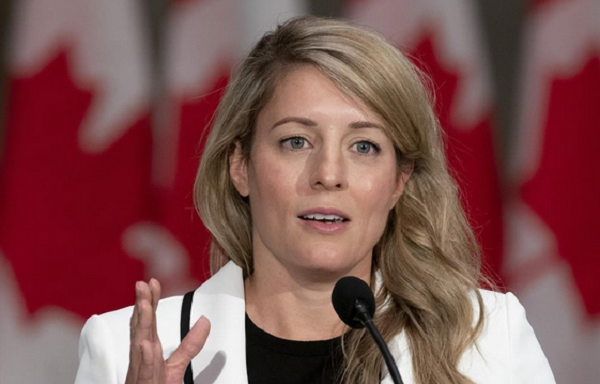Tips on what to do if you owe money to CRA and can’t afford to pay
The April 30 deadline for most Canadians to file their income tax returns has passed, and amid the pressures of inflation and high interest rates, many may be finding themselves struggling to pay what they owe.
It’s not pennies we’re talking: in 2022, 8.1 million Canadians owed the Canada Revenue Agency (CRA) an average of $7,426.
“This is probably one of the hardest economic times we’ve had in modern history,” says Toronto-based chartered professional accountant Stefanie Ricchio. Canadians are having a tough time balancing financial priorities, which means they may not have funds lined up to pay off a balance owing.
Self-employed individuals especially often find themselves owing the CRA, since taxes aren’t withheld on their pay cheques. “If they don’t have good advice or they’re not experienced, they may have spent the money without realizing they’d owe taxes,” says John Oakey, vice-president of taxation for CPA Canada.
While the deadline for self-employed Canadians to file their tax returns is June 15, the CRA still expects any amount owing to have been paid by April 30. Since June 15 falls on a Saturday, you will be considered to have filed on time if your return is received on or before June 17.
If you’re waiting to file out of fear you owe, the first thing to be aware of is that the CRA charges compound daily interest on any unpaid amount owing for 2023 as of May 1, including the self-employed. The current compound interest rate is 10 per cent.
There’s also a late-filing penalty, which is at least five per cent of your balance owing and can be up to 10 per cent for “habitual late filers,” says Ricchio.
You’ll also be charged an additional one per cent on any taxes that you owe for each full month that you file after the due date for up to 12 months. All of this is to say that if you owe money and you missed the April 30 deadline, you should still file your tax return as soon as possible.
“Make sure you file regardless of whether or not you intend to pay the full balance,” Ricchio says. Paying even a partial amount will help to reduce the interest you owe.
The CRA appreciates good-faith payments made before a tax officer is assigned to a case, says Jason Rosen, managing partner at Rosen and Associates Tax Law in Toronto. It reflects well in your compliance history and shows your intention to pay off the balance.
Don’t use a credit card
If you have no extra cash to put toward what you owe, Oakey suggests borrowing money from family or taking funds from a line of credit, which may allow you to pay it off at an interest rate lower than the CRA’s 10 per cent. Just don’t use a credit card to pay it off, experts caution, since the interest rate is likely to be much higher.
If you find yourself owing a significant amount, don’t panic; this is the time to reach out to the CRA.
“You don’t want the CRA to assume that you’re not willing to pay,” Oakey says. Contact them and let them know that you would like to set up a payment plan.
What can you afford?
Before reaching out, calculate your monthly income and expenses and determine how much you can afford to pay on a regular basis. The CRA suggests you make payments that will clear the balance owing within six months to one year, Rosen says
.
Make a phone call or arrange a payment plan online if you’re registered with the CRA’s My Account. “You can make a request for a series of payments and set up a schedule that works for you,” Ricchio says.
Once you’ve committed to a monthly payment schedule, work it into your budget. If for some reason you have to change the timeline or miss a payment, let the CRA know as soon as possible or you could be charged penalties.
If at any point the CRA reaches out to request information, be sure to respond with what they’re looking for (which could include proof of employment and bank statements), Ricchio says.
Oakey also advises Canadians to be wary of scams. “You may get a phone call that says, ‘You owe $1,000 to the CRA and if you don’t pay immediately, you’re going to go to jail,’ ” he says. That’s a red flag, since the CRA doesn’t work that way. Call the CRA directly to verify whether you have a balance owing in this case, or log onto your CRA My Account.
Don’t ignore the problem
Whatever you do, don’t try to hide from the CRA. Burying your head in the sand might be tempting, but if you ignore the problem now, it will catch up with you eventually.
The CRA can take legal actions, including garnishing your income and putting a lien on your assets, if you have a debt and haven’t confirmed arrangements to pay it, or if you don’t make your scheduled payments on time. They’ll typically make three attempts to provide a legal warning by phone, and then send one written legal warning letter. But there are no formal timelines for when this could occur.
The CRA can also put any benefit payments you may be expecting to receive, (such as the GST/HST credit) toward your balance owing instead of paying it out to you.
Under certain circumstances (such as dealing with a serious illness, the death of an immediate family member or financial hardship), you can request to cancel or waive penalties or interest. The Taxpayer Relief department reviews and considers applications to determine whether the circumstances are compelling enough, Rosen says, which can take anywhere from six months to two years.
Essentially, you’ll need to prove that paying the interest would make it difficult for you to afford basic necessities (like food and shelter) for a prolonged period of time. They’ll also consider the amount owing, how long it’s been owing, and other factors.
Be sure to provide any information that could support your request. Just remember that “in the interim, the amounts are unaffected, so you have to continue to make your payments as regularly scheduled,” Rosen points out.
Feeling lost or overwhelmed?
Accountants routinely deal with the CRA and can help facilitate communication around setting up a payment plan, Oakey says. A chartered professional accountant (CPA) can also help fill out the form to request a waiver of interest and penalties. “Usually the CRA will require documentation to prove that there is financial hardship, and a CPA can help with that as well.”
If you don’t agree with the CRA’s assessment of your income tax, you have the right to make a formal objection, Ricchio says.
Rosen explains that if the CRA reviews your books and argues they’re not complete, reliable or accurate (which they can determine on their own accord) they can do a net-worth audit. This looks at a lifestyle, which means whatever they’ve observed based on monthly income, expenses, assets and liabilities. They can assume any increase in net worth is unreported income unless you can prove otherwise. “There’s a method to that madness, but (these assessments) are not reflective of people’s lives.” Rosen says. If you find yourself facing an audit, he recommends seeking professional advice immediately.
Create a reserve fund in future
Self-employed Canadians should set themselves up for tax-filing success by creating a reserve fund for taxes, Ricchio says. Throughout the year, allocate any where from 25 to 30 per cent of your income toward this reserve.
Working with a chartered professional accountant in advance also means self-employed folks can get an idea of what their tax results will be.
If you’re an employee, you can ask your employer to deduct more income tax from each pay cheque so that you owe less at the end of the year. “It’s easier to pay a little bit each pay period instead of trying to make a lump-sum payment,” Ricchio says.
An accountant can also help you figure out if you’re eligible for any tax credits and deductions in the future, Ricchio says. Even if you self file using software such as TurboTax, you can reach out to a professional for assistance.
At the end of the day, Oakey says, the CRA just wants to collect its money.
“They don’t want to automatically create an adversarial situation. That’s why it’s super important to communicate with them.” CRA agents will work with you, he says. “They’re really trying to help. Making sure that you keep them aware of what’s going on is critical to prevent them from invoking legal action.”
Taking ownership of the situation and addressing it the best way you can demonstrates a genuine intention to be compliant goes a long way, Rosen says. “You attract more bees with honey.”
This article was first reported by The Star












